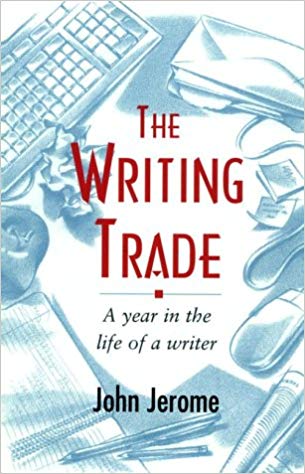Of the making of books there is no end, Ecclesiastes has it. Of the making of books about the making of books there is also a perennial flow. The shelves of a well-stocked bookstore are sure to include dozens of titles on freeing the trapped writer within, on finding one’s voice, on creating that winning proposal for yet another workout book or diet guide (heaven help us all). The mustier stacks of the better libraries, too, will have a fair selection of more arcane how-to manuals in the form of writers’ notebooks—famously those of Henry James, Anton Chekhov, and Thomas Wolfe—useful for obtaining glimpses into the difficult process of creation for anyone who would take the craft of writing seriously.
But there are other difficulties as well in writing, hardships many steps removed from finding a voice and getting subjects and verbs to agree. Among them are trying to meet deadlines when the phone is ringing off the hook and the toddlers are clamoring for lunch, of remaining inspired while one’s bank account languishes for want of long-promised checks. Few writers have treated such matters, for reasons an anthropologist might brand “taboo deformation”—write about troubles and troubles will descend on your head. John Jerome’s The Writing Trade braves such a fate, and offers a deeply considered look, at once disquieting and inspirational, into the quotidian life of a working writer.
Jerome is an accomplished author of, among other titles, Stone Work, Truck, and On Mountains (the last two having collapsed on the present book’s jacket copy into Truck on Mountains by a careless publicist). He admits at the very start his nagging fear of being branded a formula author by virtue of his having written several how-to books on skiing and other outdoorsy activities; books, he says, “that have ranged from marginally successful to downright futile.” He is self-effacing, perhaps to a fault:
I am a competent but essentially invisible writer, proof that one can earn a living from writing for years without ever breaking into the public consciousness. That’s okay, or so I’ve always claimed: all I ever wanted to do was write, quietly, for a living. Who knows what monstrosities of ambition lie buried in that assertion?
Write he does, with discipline, annually racking up a book—one was made in the twelve months this memoir recounts—and a few dozen magazine articles and calendar essays, a pace he has maintained for three decades with an annual income, in good years, that a part-time postal carrier would sneer at.
Jerome is full of complaints, most of them well-founded: editors don’t return his calls or answer his queries, the leading trade journals don’t review his books (that the New York Times gives one a favorable mention is cause for cries of joy). For all that, his book does not descend into whining. Jerome strikes the reader as a man full of mature self-awareness and properly placed worries: “After eight nonsmashes, a publisher is less likely to invest in me as a writer for the future. I am approaching sixty, and still have hopes that my career will not just dwindle to a stop; it is therefore time for things to start clicking. This makes for additional pressure, on top of the usual . . . jitters.” His worries are more than balanced out, Jerome cheerfully admits at many points throughout his book, by the freedom that comes from setting one’s own goals. At such happy moments The Writing Trade offers more encouragement than dissuasion to the would-be writer. Even if his end-of-year tax payment comes perilously close to wiping out his bank balance, Jerome remarks, what of it? He allows that the sensible solution would be a government program that pays writers like himself a subsidy to pull their typewriters out of production, in the manner of low-yield croppers, and spare reviewers and editors and creditors their troubles.
Students of writing would do well to cast aside the zen-of-writing and inner-voice manifestos that so many publishers’ catalogs sport, and instead turn to writers like John Jerome and Kenneth Atchity, whose book A Writer’s Time is essential. Perhaps a few of those students might be persuaded thereby to abandon their literary dreams for an easier avenue to worldly comforts—investment banking, say, or politics. The rest will at least take up the pen with a clearer vision of what their futures likely have in store. If their paths are to be similar to the one Jerome describes, at least they’ll have no want of pleasure amid the torments.
[The Writing Trade: A Year in the Life, by John Jerome (New York: Viking Press) 255 pp., $21.00]

Leave a Reply